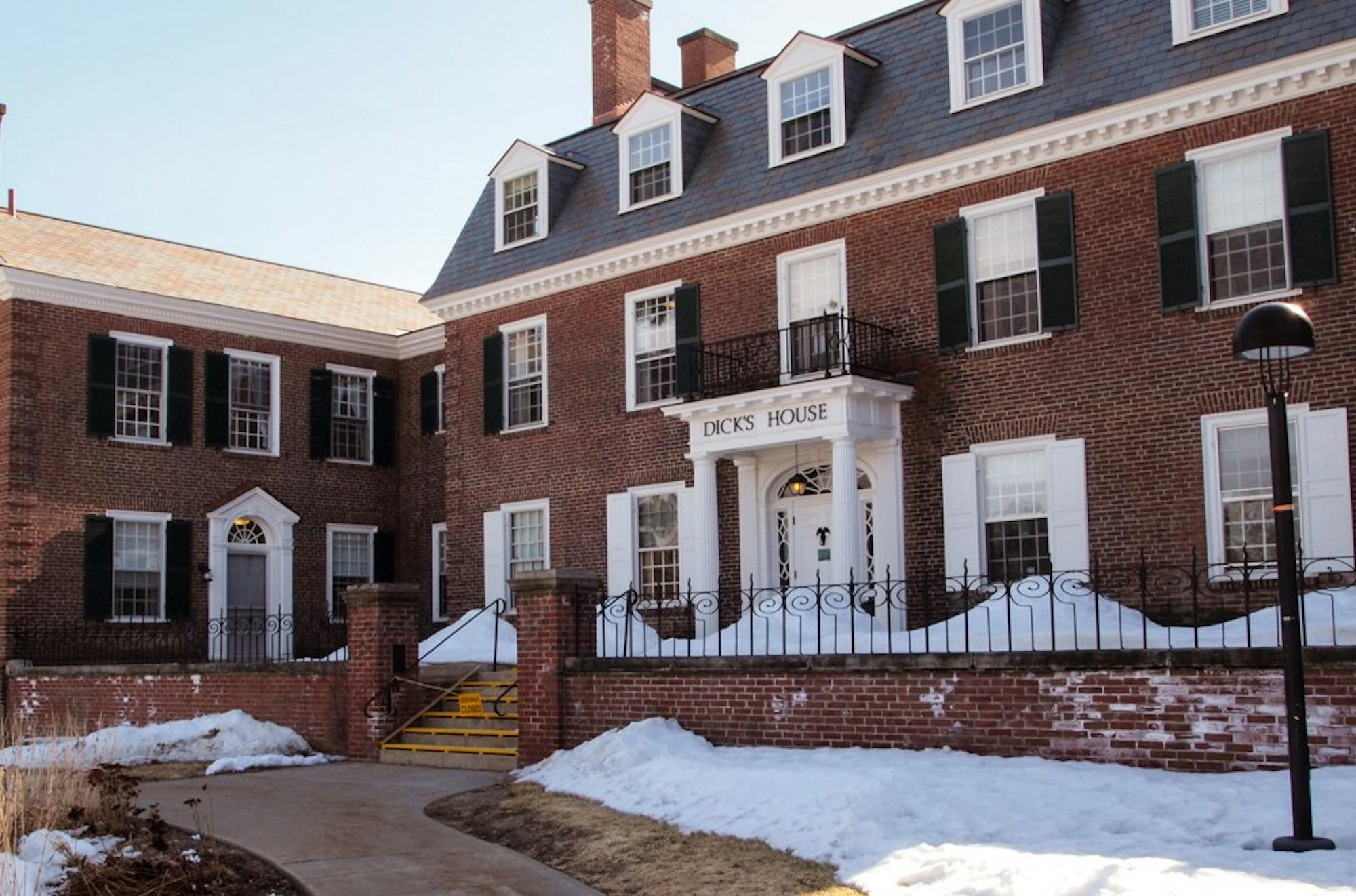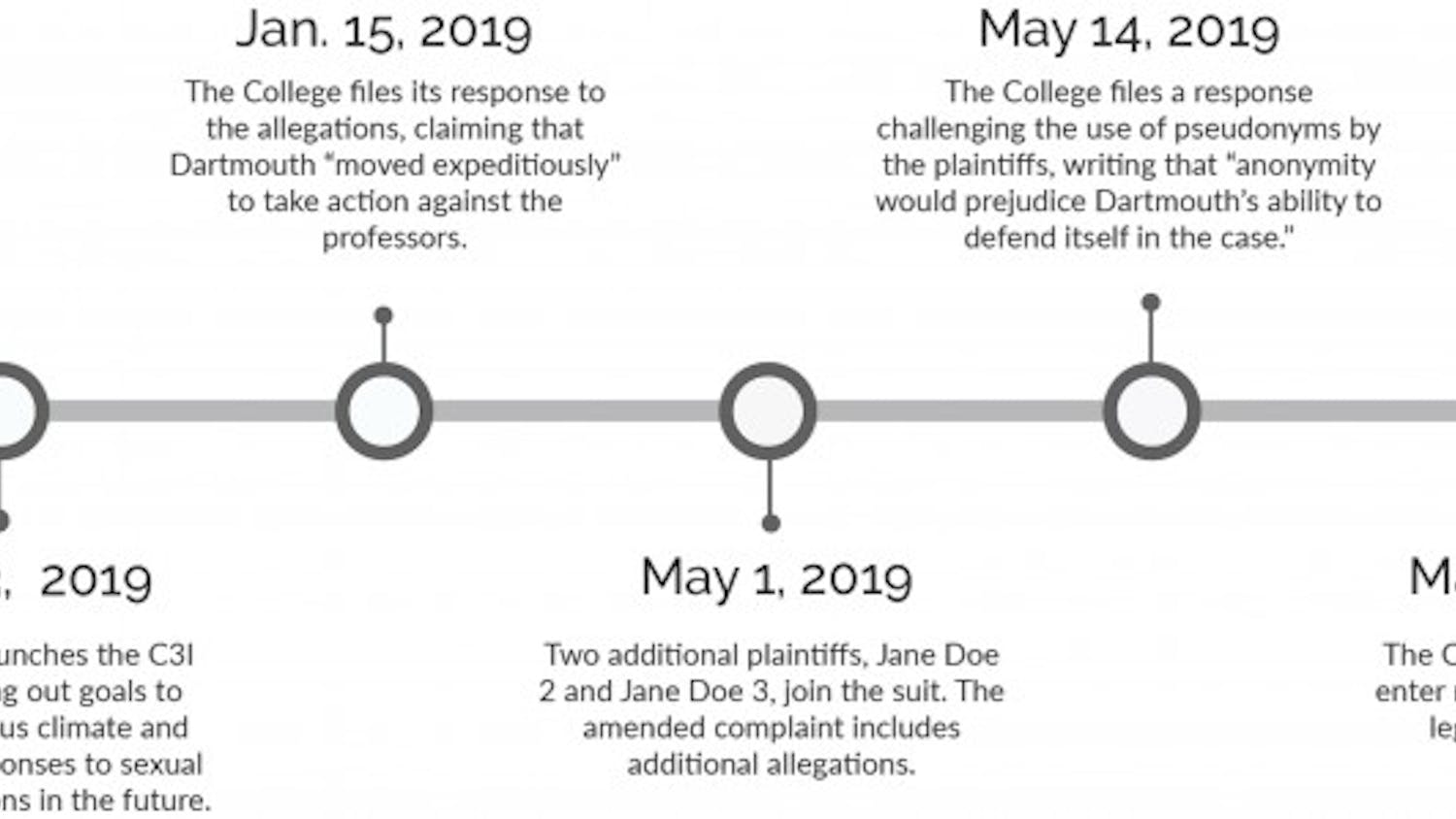Flu season has arrived in Hanover, and Dick’s House has seen heavier traffic in recent weeks — making it difficult for students to secure primary care appointments or a bed in the College’s infirmary.
According to health service director Mark Reed, the spike in cases of the flu is not exclusive to Dartmouth and represents a national trend. Reed said that Dick’s House typically sees more students with colds and flu-like symptoms in the winter and spring, but this year there has been an increase in cases compared to last year.
“This year, we’re seeing more of Influenza B,” Reed said. “January has been higher than we’ve seen in the last couple of years. There were a couple days where in primary care, the appointments were full, but this week has been a little slower — so most days if students call they can be seen the same day now.”
Students have reported difficulties, however, with being treated at Dick’s House. Isabelle Wilson ’23 said that earlier this term, she had been experiencing a high fever and flu symptoms but was unable to receive treatment for a few days, despite being advised to seek immediate attention after describing her symptoms.
“I asked if I could drop in but was told that they were not accepting drop-ins anymore because they just didn’t have the capacity for it,” Wilson said.
Wilson said she then tried to receive an appointment, but was told that Dick’s House was fully booked. A few days later, after her symptoms persisted, her mother called Dick’s House and was able to secure her an appointment.
After seeing a doctor, Wilson was eventually able to stay overnight at Dick’s House, which she said helped improve her condition, and she is since feeling better. But she added that other students had similar experiences to hers.
“There were several people that were coming into Dick’s House saying that they thought they had the flu and they — Dick’s House — just turned them away because they didn’t have any more equipment available and they didn’t have any more beds,” Wilson said. “And so there were just a ton of people either looking for the next available doctor to see them or people were just turned and went back to their dorms with the flu.”
Wilson added that she thought it was concerning to have students with cold and flu-like symptoms stay in their dorms untreated, as more students could get sick.
College spokesperson Diana Lawrence wrote in an email statement that students should speak to College nurses over the phone for advice and engage in self-care in light of Dick’s House increase in traffic.
“Often students with influenza-like illness do well to rest, self-isolate, and take over-the-counter medications,” Lawrence wrote. “A nurse can help to direct a student with next steps and determine when the student should be seen. They have openings in Primary Care for triage visits on a daily basis to assess ill students. We encourage students to call first and leave messages.”
Reed said that there may have been a misunderstanding among students who feel that they were turned away. He said that students experiencing cold or flu-like symptoms should call ahead before coming into Dick’s House as standard procedure. Reed said there are many resources available to students even if they cannot be served in person, such as 24-hour telephone advice, after-hour triage assessments provided by nurses and self-care guides for common problems available on their website.
“Not everyone who has cold or flu-like symptoms needs to be seen,” Reed said. “This is to make the best use of available resources and to provide the best services in order to protect the community from transmission.”
According to Reed, Dartmouth is one of few institutions nationwide with an infirmary available for primary care and mental health patients, although there are only 10 beds available in the inpatient department.
Reed said that Dick’s House prioritizes attending to students who are especially vulnerable and exhibit severe symptoms.
“For flu and cold symptoms, the people we encourage to come in are those with a high fever or other conditions like asthma or if they are immunosuppressed,” Reed said. “They’re at a higher risk for more serious complications from the flu.”
Dick’s House has been working with other on-campus facilities to ensure the well-being of the Dartmouth community and prevent the spread of the flu, Reed said.
“We’ve worked with facilities to do more frequent cleaning around campus to disinfect services,” Reed said. “The usual precautionary thing we’ve been telling people is to get the flu vaccine and wash their hands frequently.”
Students also have the option of being serviced at a local medical care provider if they insist on being attended to, and in most cases their health insurance will roll over, according to Reed.
“We have a close partnership with Dartmouth-Hitchcock Medical Center and a few other hospitals in the region,” Reed said. “All hospitals have periods where they are full, so if someone were really sick and needed to be in the hospital, DHMC is always available, and you can use their emergency room if you need to be admitted there.”
Reed said that the rates of colds and flu-like symptoms have been waning back to a normal rate and that availability at Dick’s House has been opening back up to normal. Students can now expect to be able to see a doctor the same day so long that they notify in advance.
“We may have some difficult days, but now if students call they can be seen the same day,” Reed said. “There have been some times when the in-patient unit beds have been full, but right now the beds are busy, but available. Since late last week, there have been beds available, but there are people coming in and out. We encourage triage so that we can use the beds for the students who need them the most.”




